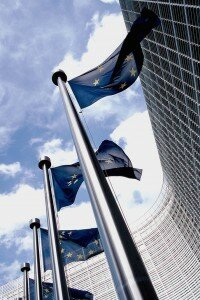This Year’s State of the Union more Strained, as Europe Stagnates Dealing With Economic Crisis
 UTRECHT – European ideals came to an abrupt halt this year as the financial crisis overshadowed most of the five major challenges of Barroso’s 2010 State of the Union address. Repeatedly blaming the lack of a common European voice for the union’s sluggish response to the crisis, a more serious Barroso addressed the union this year, arguing that deeper integration is the only way to move Europe forward.
UTRECHT – European ideals came to an abrupt halt this year as the financial crisis overshadowed most of the five major challenges of Barroso’s 2010 State of the Union address. Repeatedly blaming the lack of a common European voice for the union’s sluggish response to the crisis, a more serious Barroso addressed the union this year, arguing that deeper integration is the only way to move Europe forward.
By Veronika Gorlova and Tim Hersevoort
Last year, in the first ever European State of the Union speech, Barroso proposed his five major challenges for the coming year as such: dealing with economic crisis and governance; restoring growth for jobs by accelerating the Europe 2020 agenda; building an area of freedom, justice and security; launching negotiations for a modern EU budget and; pulling Europe’s weight on the global stage
“It is now clear that most of these goals have been snowed under by the current financial crisis,” says Mathieu Segers, assistant professor of European Integration at Utrecht University.
“However, it is important to keep in mind that the objectives that came forward in the State of the Union are meant to be dealt with in the long-term, not just within one year,” says Segers, explaining another reason why there hasn’t been much concrete progress on those goals. “Many of them, such as economic growth and security, are European evergreens.”
What Segers means by evergreens, is that these are ideals that the EU has been aiming for throughout its history.
One major issue that the financial crisis did make very clear last year is that Europe was not, and still is not, speaking in unison. Thus, Barroso’s call in 2010 for ‘engaging as Europe, not just as 27 individual countries’, seems farther away than ever.
The problem with this is that it hinders the swift policy making Europe needs in order to deal with the crisis. This September the Economist said: “Every response to the debt crisis has been subject to vetoes by governments and parliaments. Bond traders can move in seconds and hours; states in days and weeks; the EU typically takes months, years, even decades”.
Barroso speech acknowledges just this. He highlighted the lack of a single European policy at this year’s State of the Union, falling short of telling the member states that intergovernmental decision making has failed.
“It was an illusion to think that we could have a common currency and a single market with national approaches to economic and budgetary policy. Let’s avoid another illusion that we can have a common currency and a single market with an intergovernmental approach,” said Barroso.
To counterbalance the growing intergovernmental approach, the EU worked hard last year on a plan to tax financial transactions, which Barroso uncovered at this year’s speech. This would grant the EU its own budget, making it less dependent on the financial contributions of member states.
However, the tax proposal, which Barroso says can generate up to €55 billion a year, has not been greeted with open arms by many member states and seems unlikely to come into effect in the near future.
So as the goals of Barroso’s 2010 State of the Union have been put on the long term, it will be interesting to see if this year’s call for less intergovernmentalism will come swiftly into effect. Will the eurocrisis lead to more integration, or to more fragmentation? Not last year, as Barroso proclaimed a year ago, but this year will be Europe’s moment of truth.